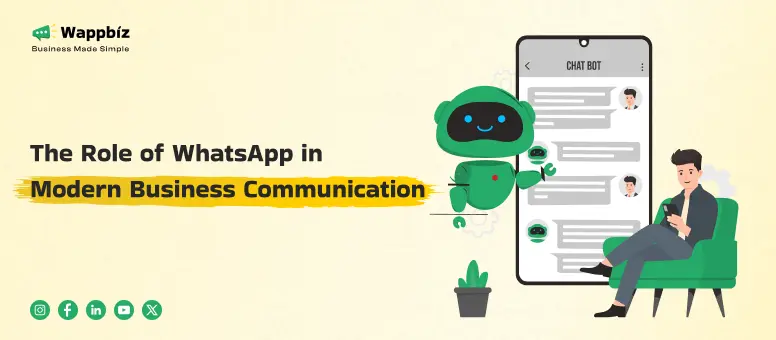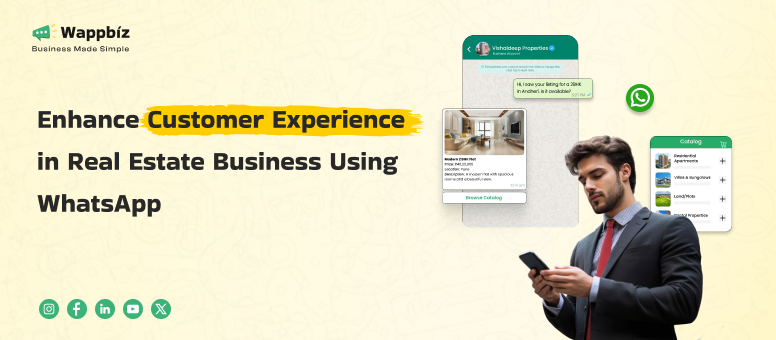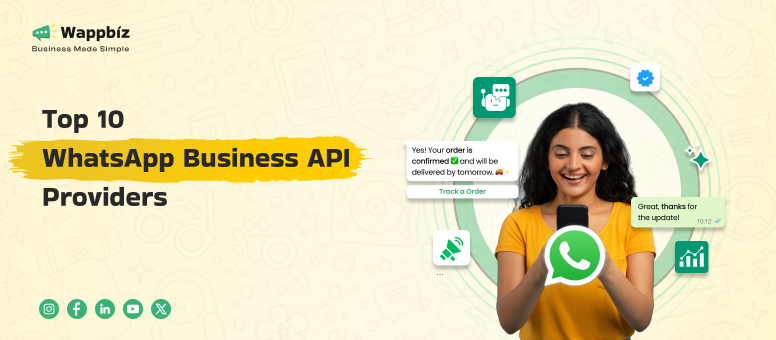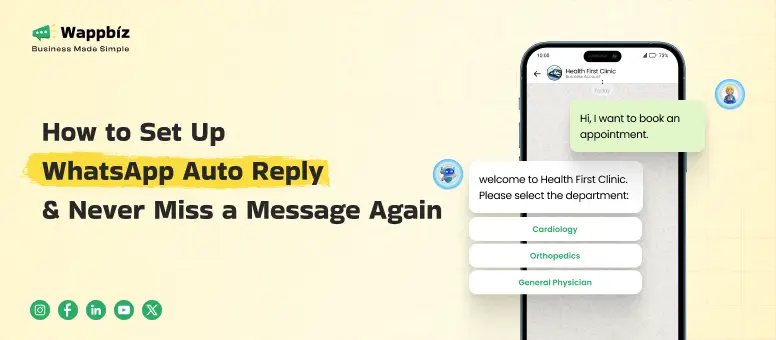The importance of business communication cannot be overstated, as it forms the backbone of successful operations within any organization. Effective communication ensures that information flows smoothly between team members, departments, and even with external partners, creating alignment and shared understanding. Clear, strategic exchanges help prevent misunderstandings, streamline decision-making, and enhance productivity.
Whether it’s verbal, written, or digital, business communication is crucial for building strong relationships, supporting employee morale, and fostering a collaborative culture. In today’s fast-paced business environment, mastering communication skills is essential for navigating challenges, driving growth, and achieving organizational goals.
What is Business Communication?
Imagine a bustling office where information flows seamlessly from one department to another, ensuring that every team member is on the same page, every project is on track, and every client interaction is a success. This smooth exchange of ideas, data, and feedback is at the heart of business communication. It’s the lifeline that keeps businesses running efficiently, helping them grow and thrive in an ever-competitive world. But what exactly is business communication, and why is it so crucial?
Business communication is the process of sharing information within and outside of an organization. It includes all forms of interaction—whether it’s verbal, non-verbal, written, or digital—that facilitate the flow of information between employees, management, clients, and stakeholders. In a corporate setting, business communication is vital for coordinating tasks, making decisions, solving problems, building relationships, and promoting the company’s values and goals. It encompasses everything from internal emails and meetings to marketing campaigns and customer interactions.
What is role of WhatsApp in business communication?
WhatsApp, initially designed for personal messaging, has become a vital tool for business communication. It allows companies to engage with customers, clients, and employees in real-time. Businesses use WhatsApp for internal and external communication, sharing updates, sending documents, and providing instant support. The WhatsApp Business App and WhatsApp Business API offer advanced features like automation, chatbots, and personalized marketing, making business interactions more efficient and effective. Platforms like Wappbiz help companies integrate WhatsApp into their strategies, streamlining communication and boosting customer engagement.
How to Use WhatsApp in Business Communication?
WhatsApp has evolved from a simple messaging app into a powerful tool for business communication, transforming how companies interact with customers, clients, and team members. Here’s a detailed explanation of how WhatsApp is utilized in business communication:
1. Customer Support
- Automated Chatbots: Businesses use WhatsApp chatbots to provide 24/7 customer support, answering queries, processing orders, and managing bookings instantly. This automation ensures quick responses, improving customer satisfaction.
- Real-Time Assistance: Companies offer live support via WhatsApp, allowing customer service representatives to handle complex issues efficiently, giving customers personalized assistance in real-time.
2. Marketing Campaigns
- Personalized Messaging: Using the WhatsApp Business API, businesses can send tailored promotions, product updates, and exclusive offers directly to customers’ phones. This direct and personal approach significantly boosts engagement and conversion rates.
- Campaign Automation: Tools like Wappbiz help automate WhatsApp marketing, enabling businesses to schedule campaigns, track engagement, and analyze performance, optimizing marketing strategies based on real-time data.
You can also explore our blog on campaign analytics.
3. Team Collaboration
- Group Chats for Teams: WhatsApp groups facilitate communication among team members, allowing businesses to coordinate projects, share updates, and assign tasks efficiently. Teams can discuss ongoing work, provide instant feedback, and make quick decisions, enhancing productivity.
- Document Sharing: Teams can share documents, reports, and multimedia files directly through WhatsApp, ensuring that all members have access to the necessary resources instantly, even on the go.
4. Order Updates for E-commerce
- Automated Order Tracking: E-commerce businesses use WhatsApp to send order confirmations, shipping updates, and delivery statuses. This keeps customers informed and engaged throughout the buying process, enhancing their shopping experience.
- Post-Purchase Support: Businesses also use WhatsApp for handling returns, processing refunds, and gathering customer feedback, providing a seamless post-purchase experience that boosts customer retention.
5. Event Management
- RSVPs and Invitations: Companies utilize WhatsApp to manage event RSVPs, send invitations, and confirm attendance. By using groups and broadcast lists, businesses can easily manage communications with participants.
- Event Reminders and Updates: Businesses send out reminders and event updates, such as schedules or location changes, ensuring that attendees are well-informed and engaged.
15 Importance of Business Communication
Think of business communication as the backbone of any organization. Without it, even the most innovative ideas or the best products would struggle to find their audience or deliver value. Let’s dive into why effective communication is essential for businesses of all sizes:
Boosts Team Collaboration
Effective business communication ensures that all team members are aware of their roles, tasks, and objectives. By eliminating ambiguity and miscommunication, teams can collaborate more effectively. This clarity enhances coordination, allowing projects to move forward smoothly and efficiently. When everyone knows their responsibilities and how their work fits into the bigger picture, collaboration becomes seamless, resulting in higher productivity and successful project outcomes.
Enhances Employee Engagement
Employees feel more valued and motivated when they are kept informed about the company’s goals, achievements, and updates. Regular and transparent communication, through team meetings or digital platforms like WhatsApp, fosters a sense of belonging and ownership among employees. When employees feel engaged, they are more likely to invest their efforts, bring innovative ideas, and show commitment to achieving the company’s objectives, which boosts overall productivity.
Strengthens customer relationships
Consistent and transparent communication is crucial for building customer trust. Businesses that maintain regular interactions through personalized messages, customer support chatbots, or timely updates create a positive experience for customers. Platforms like WhatsApp allow real-time communication, enabling businesses to respond quickly to customer inquiries or feedback. This builds credibility and customer loyalty, as customers feel valued and attended to, fostering long-term relationships.
Facilitates decision-making
Quick and accurate decision-making is essential for business success. Clear and timely communication allows management to access relevant information when it’s needed most. By using tools like WhatsApp APIs, businesses can facilitate the flow of information efficiently among decision-makers, enabling them to analyze situations and make informed decisions swiftly. This prompt exchange of information helps businesses adapt quickly to changes and stay competitive.
Promotes Brand Awareness
Strategic communication ensures that businesses convey their brand message and values consistently. Platforms like WhatsApp Marketing allow companies to send tailored messages and engaging multimedia content directly to their audience, increasing brand visibility. By keeping communications consistent and interactive, businesses can build a strong brand presence and attract potential customers, ensuring that their brand remains top-of-mind.
Increases Sales and Revenue
Personalized communication strategies, such as those enabled by WhatsApp chatbots, help businesses connect with their target audience effectively. Businesses can engage customers by sending promotional offers, personalized recommendations, or exclusive discounts through direct messaging. This personalized approach increases the likelihood of conversions as customers feel valued and receive relevant offers, ultimately leading to higher sales and revenue growth.
Improves Problem-Solving
Clear communication is crucial for efficient problem-solving. When issues arise, prompt and precise communication ensures that they are identified and addressed quickly. Tools like chatbots and support APIs can provide instant solutions to common problems, minimizing disruptions. This real-time support allows businesses to resolve customer issues or internal challenges swiftly, keeping operations smooth and efficient.
Supports Digital Transformation
As businesses evolve digitally, tools like WhatsApp APIs and chatbots become vital for automating communications. These tools help streamline customer support, marketing campaigns, and internal communication, ensuring that messages are delivered quickly and efficiently. Automated responses, status updates, and interactions managed through chatbots not only save time but also enhance the customer experience, allowing businesses to maintain a competitive edge in the digital landscape.
Builds Strong Client Relationships
Clear and consistent communication is key to maintaining strong relationships with clients. Businesses that keep their clients informed about project progress, milestones, or changes show professionalism and reliability. With platforms like Wappbiz, businesses can automate these interactions, ensuring that clients receive timely updates and remain engaged without requiring constant manual effort from the business side, leading to higher client satisfaction.
Encourages Innovation
An environment that fosters open communication encourages employees to share ideas, feedback, and concerns. This flow of information promotes creativity and collaboration, leading to innovative solutions and improvements. When employees feel comfortable voicing their thoughts through accessible communication channels, they contribute valuable ideas that can drive business growth and development.
Reduces Errors and Misunderstandings
Misunderstandings or unclear instructions can lead to costly mistakes. Effective communication reduces these risks by ensuring that messages are clear and precise. When managers give explicit directions and employees have the opportunity to clarify doubts, tasks are performed accurately. Additionally, automated tools like WhatsApp APIs help maintain message consistency, minimizing human error and improving overall work quality.
Enhances Employee Retention
Employees who feel valued and connected through regular communication are more likely to stay with the company. Sharing updates, recognizing achievements, and providing support shows that the company values its employees. This sense of belonging and stability boosts morale and reduces turnover, saving the company resources on recruitment and training while fostering a positive and productive work environment.
Aids in Conflict Resolution
Open communication is crucial for resolving conflicts within an organization. By providing platforms where employees can express their concerns and facilitating transparent discussions, businesses can address disputes before they escalate. WhatsApp chatbots can also manage internal support requests, ensuring that conflicts are handled quickly and professionally and maintaining a harmonious workplace environment.
Keeps Businesses Agile
In a rapidly changing market, businesses need to adapt quickly to new opportunities, challenges, or shifts in consumer behavior. Effective communication allows companies to coordinate responses promptly. By using tools like WhatsApp APIs, businesses can send real-time updates and mobilize their teams quickly, ensuring they stay ahead of competitors and maintain relevance in the market.
Increases Efficiency
Automated communication tools like WhatsApp chatbots help businesses handle routine processes such as customer support, order updates, and scheduling. This automation reduces the workload on employees, freeing them up to focus on strategic and high-impact tasks. By maintaining consistent and efficient communication, businesses optimize time and resources, leading to increased overall productivity and operational efficiency.
Integration with Platforms like Wappbiz
Platforms like Wappbiz enable businesses to integrate WhatsApp seamlessly into their communication strategies. Wappbiz offers advanced tools like chatbots, automated marketing software, and analytics features, helping companies streamline interactions, improve customer engagement, and enhance efficiency across different communication channels.
Conclusion
Business communication is the foundation that unites an organization, enabling it to thrive and grow. It’s not just about exchanging information; it’s about building relationships, fostering collaboration, and driving every element of the business forward. From enhancing team dynamics and customer loyalty to executing marketing campaigns and embracing digital transformation, effective communication is the key to operational success.

FAQ’s
What is the Benefit of WhatsApp Business Chat?
WhatsApp Business Chat offers instant customer connections, providing personalized support and fostering strong relationships through real-time communication.
What are the disadvantages of a WhatsApp Business account?
While beneficial for engagement, WhatsApp Business accounts have limitations—advanced features like automation and analytics require the WhatsApp Business API, which may involve additional costs.
How does a business WhatsApp work?
Business WhatsApp uses features such as chatbots, product catalogs, and automated replies to engage customers, promote products, and efficiently manage inquiries.
What communication is used in WhatsApp?
WhatsApp enables instant messaging, voice calls, video calls, and multimedia sharing for seamless and interactive communication between businesses and their audience.
What are the 10 objectives of business communication?
1. Information Sharing
2. Persuasion
3. Decision-Making
4. Building Relationships
5. Employee Engagement
6. Problem-Solving
7. Brand Image Development
8. Productivity Improvement
9. Conflict Resolution
10. Compliance and Legal Clarity
What are the 4 main types of business communication?
1. Internal Upward Communication
2. Internal Downward Communication
3. Lateral Communication within the Organization
4. External Communication
What are the 7cs of business communication?
1. Clarity
2. Conciseness
3. Coherence
4. Correctness
5. Courtesy
6. Concreteness
7. Completeness
What is WhatsApp in business communication?
WhatsApp is a messaging application utilized by corporate entities to interact with customers, employees, and stakeholders via text, audio, and video messaging, and file dissemination. It also has WhatsApp Business, a business-focused version with extra tools.
What is the use of WhatsApp in communication?
1.Instant messaging for quick business updates.
2.Customer support and inquiries.
3.Marketing and promotions through broadcast messages.
4.Group communication for team collaboration.
5.Secure document and multimedia sharing.
Is WhatsApp safe for business communication?
WhatsApp provides end-to-end encryption, which makes messages secure. That said, secure messaging and two-step verification add a layer of security. Risks include data privacy issues, phishing risks, limited control of business discussions. Get enterprise-level protection and compliance with WhatsApp Business API.







